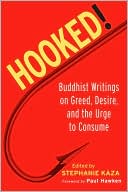Category Books
- Fiction Books & Literature
- Graphic Novels
- Horror
- Mystery & Crime
- Poetry
- Romance Books
- Science Fiction & Fantasy
- Thrillers
- Westerns
- Ages 0-2
- Ages 3-5
- Ages 6-8
- Ages 9-12
- Teens
- Children's Books
- African Americans
- Antiques & Collectibles
- Art, Architecture & Photography
- Bibles & Bible Studies
- Biography
- Business Books
- Christianity
- Computer Books & Technology Books
- Cookbooks, Food & Wine
- Crafts & Hobbies Books
- Education & Teaching
- Engineering
- Entertainment
- Foreign Languages
- Game Books
- Gay & Lesbian
- Health Books, Diet & Fitness Books
- History
- Home & Garden
- Humor Books
- Judaism & Judaica
- Law
- Medical Books
- New Age & Spirituality
- Nonfiction
- Parenting & Family
- Pets
- Philosophy
- Political Books & Current Events Books
- Psychology & Psychotherapy
- Reference
- Religion Books
- Science & Nature
- Self Improvement
- Sex & Relationships
- Social Sciences
- Sports & Adventure
- Study Guides & Test Prep
- Travel
- True Crime
- Weddings
- Women's Studies
Hooked!: Buddhist Writings on Greed, Desire, and the Urge to Consume »

Authors: Stephanie Kaza (Editor), Paul Hawken
ISBN-13: 9781590301722, ISBN-10: 1590301722
Format: Paperback
Publisher: Shambhala Publications, Inc.
Date Published: February 2005
Edition: (Non-applicable)
Author Biography: Stephanie Kaza
Book Synopsis
At one time or another, most of us have experienced an all-consuming desire for a material object, a desire so strong that it seems like we couldn't possibly be happy without buying this thing. Yet, when we give in to this impulse, we often find ourselves feeling frustrated and empty. Advertisers, of course, aim to hook us in this way, and, from a global perspective, our tendency to get hooked fuels the rampant over-consumption that is having a devastating impact on the world's stability and on the environment.
According to the contributors to this unique anthology, Buddhism can shed valuable light on our compulsions to consume. Craving and attachment—how they arise and how to free ourselves of them—are central themes of Buddhist thought. The writings in this volume, most of which have never been previously published, offer fresh perspectives and much-needed correctives to our society's tendency to believe that having more will make us happier.
Hooked! includes a range of writings on how to apply Buddhist thought and ethics to understand and combat the problem of over-consumption as individuals and collectively. Contributors include popular Western teachers, Asian masters, scholars, and practitioners such as:
• Pema Chödrön—on what is actually happening at the moment we're "hooked," and how to get beyond that.
• Joseph Goldstein—on how mindfulness training can help us stop "wanting to want."
• Bhikshuni Thubten Chödrön—on how consumer mentality influences spiritual practice.
• Judith Simmer-Brown—on how cultivating spiritually based activism and compassionate action can help us address the negative effects of consumerism.
• Rita Gross—on how understanding moderation can curb overconsumption.
• Santikaro Bhikkhu—on practicing generosity in a consumer world.
Publishers Weekly
Kaza, who co-edited the environmental Buddhist collection Dharma Rain, gathers key Buddhist thinkers to reflect upon aspects of consumerism, greed and economics. Certainly, many other authors have examined consumerism from the lens of their religious traditions, but this book's Buddhist perspective is unusual, and its pairing of consumerist critiques with core Buddhist concepts is generally fruitful. Buddhism assumes, for example, that the very foundation of suffering is desire-a core teaching that has obvious applications to consumerism, whose goal is to multiply and intensify desire. Moreover, Buddhism stresses the impermanence of all things, providing a valuable perspective on the transient nature of goods. Several of the authors in this cogent anthology draw upon the metaphor of the "hungry ghost" of Buddhism to describe the ethos of consumerism: with their enormous bellies and tiny mouths, hungry ghosts are incapable of ever being satisfied. Some of the book's most helpful essays draw on Buddhism not merely to diagnose the problem, but to prescribe solutions on individual, local or global levels. Second-generation Zen American Sumi Loundon seeks the Buddha's middle way as a viable compromise between the consumer desires of her heart and the austerity of her antimaterialist childhood, while Vermont Zen Center teacher Sunyana Graef discusses taking refuge in the Three Jewels as an antidote to selfishness and excess. (Feb.) Copyright 2005 Reed Business Information.
Table of Contents
Subjects
 Buddhism
Buddhism  Buddhist Doctrine
Buddhist DoctrineChristianity
 All Religion
All Religion  Buddhism
BuddhismReligion Books
 Buddhism
Buddhism  Buddhist Doctrine
Buddhist DoctrineReligion Books
 All Religion
All Religion  Buddhism
BuddhismChristianity
 Christianity
Christianity  Buddhism
BuddhismChristianity
 Christianity
Christianity  All Religion
All ReligionNonfiction
 Religion
Religion  Buddhism
BuddhismNonfiction
 Religion
Religion  All Religion
All ReligionReligion Books
 Christianity
Christianity  Buddhism
BuddhismReligion Books
 Christianity
Christianity  All Religion
All Religion
